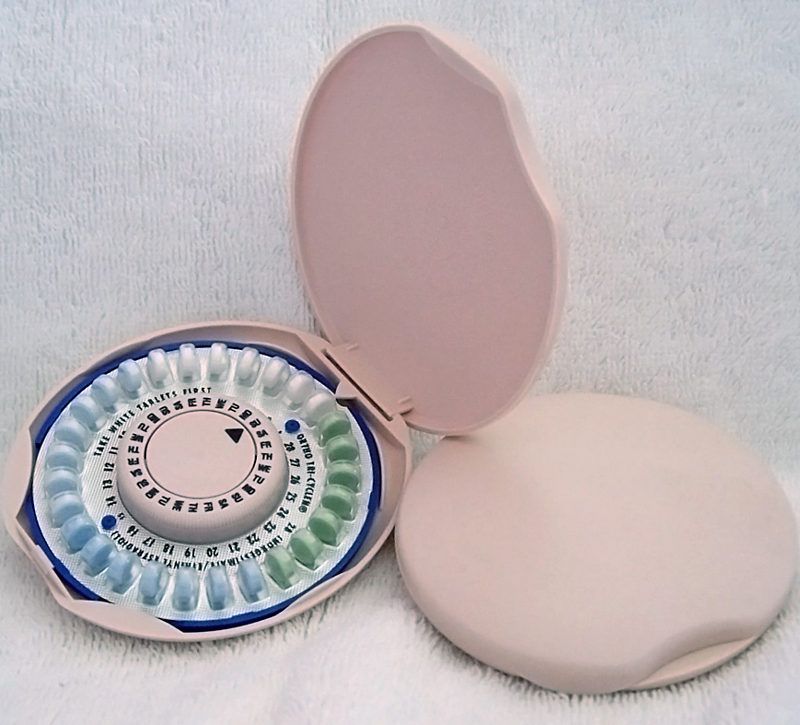![[feature] 10 Things That Mess With Your Period](https://blogger.googleusercontent.com/img/b/R29vZ2xl/AVvXsEh6BZf5au6ChF7SaR9ZsoO7IjRYeTsVCrqg6SO_g7JUKHKSeoKwqooJI7B2GzEEVxIV2VWWUypWP90qc7AuR35i1UsRQD6kMJT4uv7jFB8t1dd04z5ywdL5gKZXM9yKC1_0M-MlydGuBBxT/s1600/dearjulius.com.jpg)
By Kiera Aaron, Health.com
Whether your period is heavy, erratic, or missing altogether, your menstrual cycle issues could be due to one of these problems
1
 Wouldn't it be great if you could circle a date on your calendar and have your period actually show up then? You'd plan beach trips around it and you'd never be caught without a tampon. Unfortunately, a little variation is typical: "The average cycle is 28 days—that's 28 days between the first day of one period and the first day of your next period—but anywhere in between 24 and 31 days is considered normal," says Veronica Lerner, MD, assistant professor of obstetrics and gynecology at NYU Langone Medical Center. "Still, a highly irregular period is usually a sign that something else isn't right in your body." Take note of these 10 things that could be messing with your menstrual cycle, and see your doc if anything seems too far off.
Wouldn't it be great if you could circle a date on your calendar and have your period actually show up then? You'd plan beach trips around it and you'd never be caught without a tampon. Unfortunately, a little variation is typical: "The average cycle is 28 days—that's 28 days between the first day of one period and the first day of your next period—but anywhere in between 24 and 31 days is considered normal," says Veronica Lerner, MD, assistant professor of obstetrics and gynecology at NYU Langone Medical Center. "Still, a highly irregular period is usually a sign that something else isn't right in your body." Take note of these 10 things that could be messing with your menstrual cycle, and see your doc if anything seems too far off.
2
 Heard of marathon runners losing their periods? It's not a myth: frequent rigorous exercise combined with low body fat puts stress on your body, and this stress tells your brain to stop producing reproductive hormones. "Since you can't nourish a baby under extreme stress, your body temporarily shuts down the production of fertility hormones," explains Dr. Lerner. One study found that half of exercising women experience subtle menstrual irregularity. A period that arrives a few days off schedule is nothing to worry about, but see your doctor if you haven't had your period for longer than three months. "It's a condition called amenorrhea, and it can compromise your bone density long-term," says Dr. Lerner.
Heard of marathon runners losing their periods? It's not a myth: frequent rigorous exercise combined with low body fat puts stress on your body, and this stress tells your brain to stop producing reproductive hormones. "Since you can't nourish a baby under extreme stress, your body temporarily shuts down the production of fertility hormones," explains Dr. Lerner. One study found that half of exercising women experience subtle menstrual irregularity. A period that arrives a few days off schedule is nothing to worry about, but see your doctor if you haven't had your period for longer than three months. "It's a condition called amenorrhea, and it can compromise your bone density long-term," says Dr. Lerner.
3
 Carrying extra pounds does more than sabotage your skinny jeans. "Excess fat cells result in elevated levels of estrogen, which can ultimately stop your ovaries from releasing an egg," says Dr. Lerner. Meanwhile, the endometrial lining continues to thicken. "Obese women usually experience heavy, infrequent, longer-lasting periods." If you're overweight and experiencing these symptoms, don't just stock up on "super" tampons. Having too much estrogen for an extended period of time increases your risk of endometrial cancer. If you can't seem to drop pounds, talk to your gynecologist about going on the pill. "Birth control thins out your endometrial lining, decreasing your risk for endometrial cancer," explains Dr. Lerner.
Carrying extra pounds does more than sabotage your skinny jeans. "Excess fat cells result in elevated levels of estrogen, which can ultimately stop your ovaries from releasing an egg," says Dr. Lerner. Meanwhile, the endometrial lining continues to thicken. "Obese women usually experience heavy, infrequent, longer-lasting periods." If you're overweight and experiencing these symptoms, don't just stock up on "super" tampons. Having too much estrogen for an extended period of time increases your risk of endometrial cancer. If you can't seem to drop pounds, talk to your gynecologist about going on the pill. "Birth control thins out your endometrial lining, decreasing your risk for endometrial cancer," explains Dr. Lerner.
4
 Your body has the opposite reaction when you're underweight; it doesn't produce enough estrogen. "And you need adequate levels of estrogen to build your uterine lining and have a period," says Holly Puritz, MD, and medical director of OB/GYN services at Sentara Leigh Hospital in Virginia. Still, if you've always weighed less than average, this might not be a problem. "You're more likely to notice a difference if you've lost a significant amount of weight in a short period of time," Dr. Puritz explains. If you've dropped serious pounds, but you're still within a healthy range, your body should adjust within a few months.
Your body has the opposite reaction when you're underweight; it doesn't produce enough estrogen. "And you need adequate levels of estrogen to build your uterine lining and have a period," says Holly Puritz, MD, and medical director of OB/GYN services at Sentara Leigh Hospital in Virginia. Still, if you've always weighed less than average, this might not be a problem. "You're more likely to notice a difference if you've lost a significant amount of weight in a short period of time," Dr. Puritz explains. If you've dropped serious pounds, but you're still within a healthy range, your body should adjust within a few months.
5
 Any medication that involves hormones—like thyroid medication (and thyroid problems in general), steroids, or antipsychotics (which release a hormone, dopamine)—can influence your period. The first thing you should know is that hormones don't act in isolation. "All hormones circulate throughout your bloodstream, so they're all connected, even if they're produced in different glands," says Dr. Puritz. Plus, some hormone receptors look a lot like other hormone receptors, so a drug can easily mistake its target hormone, affecting a fertility hormone as well as the intended thyroid hormone, for example. Don't panic if your cycle is a couple days off, but see your doc if your period is consistently over a week early or late.
Any medication that involves hormones—like thyroid medication (and thyroid problems in general), steroids, or antipsychotics (which release a hormone, dopamine)—can influence your period. The first thing you should know is that hormones don't act in isolation. "All hormones circulate throughout your bloodstream, so they're all connected, even if they're produced in different glands," says Dr. Puritz. Plus, some hormone receptors look a lot like other hormone receptors, so a drug can easily mistake its target hormone, affecting a fertility hormone as well as the intended thyroid hormone, for example. Don't panic if your cycle is a couple days off, but see your doc if your period is consistently over a week early or late.
6
 "Pesticides mimic hormones," says Dr. Puritz. "They compete with and block the hormones in your body, making it difficult for your endocrine system to function properly." One study found that women living on farms that used pesticides had longer cycles and more missed periods than women who lived on pesticide-free farms. What's more, those who were exposed to hormonally active pesticides were 60 to 100% more likely to have long cycles, missed periods, and spotting, according to the study published in the American Journal of Epidemiology. Dr. Puritz suggests limiting your exposure any way you can: "Even choosing organic food at the supermarket helps," she says.
"Pesticides mimic hormones," says Dr. Puritz. "They compete with and block the hormones in your body, making it difficult for your endocrine system to function properly." One study found that women living on farms that used pesticides had longer cycles and more missed periods than women who lived on pesticide-free farms. What's more, those who were exposed to hormonally active pesticides were 60 to 100% more likely to have long cycles, missed periods, and spotting, according to the study published in the American Journal of Epidemiology. Dr. Puritz suggests limiting your exposure any way you can: "Even choosing organic food at the supermarket helps," she says.
7
 "Evolutionarily speaking, times of high stress aren't conducive to bringing a baby into the world, and a regular cycle is designed to do just that," says Dr. Puritz. That explains why stressed out women were less likely to conceive than their more zen counterparts in a Human Reproduction study.
"Evolutionarily speaking, times of high stress aren't conducive to bringing a baby into the world, and a regular cycle is designed to do just that," says Dr. Puritz. That explains why stressed out women were less likely to conceive than their more zen counterparts in a Human Reproduction study.
If you're trying to have a baby, try these 10 ways to boost your odds of getting pregnant—and if you're happy with your current number of kids, consider your scattered cycle a sign that you need a spa day.
Whether your period is heavy, erratic, or missing altogether, your menstrual cycle issues could be due to one of these problems
1
Period problems

2
Exercising rigorously

3
Being overweight

4
Being underweight

5
Taking prescription drugs

6
Working with pesticides

7
Feeling stressed out

If you're trying to have a baby, try these 10 ways to boost your odds of getting pregnant—and if you're happy with your current number of kids, consider your scattered cycle a sign that you need a spa day.
8
The pill

9
Your age
While you probably expect your periods to become less frequent as you approach menopause, it can throw some surprises at you. Thanks to shifts in your hormones, your cycle gets shorter before it gets longer, explains Samantha Butts, MD, associate professor of obstetrics and gynecology at Penn Medicine. "Then, at a certain point, the number of eggs in your ovaries declines such that your periods are infrequent," she says. Unfortunately, that means you'll need to put up with more frequent periods before you can start saying goodbye for good. Until menopause comes, may we suggest stocking up on chocolate and keeping an emergency tampon in your purse?10
Sleeping poorly

11
Traveling across time zones























